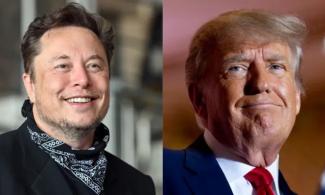
Twitter had reportedly appealed the decision of the lower court to the U.S. Court of Appeals for the District of Columbia, which in July upheld Howell’s ruling.
A US court has reportedly fined billionaire Elon Musk’s social media company, X, formerly known as Twitter, the sum of $350,000 for failing to hand over records from the former US President, Donald Trump’s account to the special counsel investigating the events leading to the Jannuar 6, 2021, attack at Capitol.
The Washington Post reports that an appellate court ruling unsealed Wednesday disclosed that a lower-court judge, Beryl A. Howell, in March ruled that Twitter had to comply with a sealed search warrant requested by the special counsel and pay $350,000 for missing a court-ordered deadline by three days.
The filing also reveals that Howell had found reason to believe that should the search warrant be made public, Trump might engage in obstructive conduct or flee prosecution.
Twitter had reportedly appealed the decision of the lower court to the U.S. Court of Appeals for the District of Columbia, which in July upheld Howell’s ruling.
Now that Trump has been charged with four felonies related to his attempts to stay in power after losing the 2020 election, the appellate decision has been unsealed, The Washington Post reports.
Attorneys for Twitter did not oppose the search warrant but argued that a gag order preventing the company from alerting Trump to the search violated the First Amendment.
The social media company argued that it should not have to hand over the records until the issue was resolved, but Howell who took sides with the government found Twitter in contempt for failing to comply with the search warrant.
The judge gave Twitter until 5 p.m. on February 7 to produce the records, with sanctions of $50,000 per day, to double every day that Twitter did not comply. Twitter produced the records three days later.
The following month, Howell upheld the nondisclosure order and imposed a $350,000 contempt sanction on Twitter.
The appellate court ruled that the lower court judge, Howell, found that there were “reasonable grounds to believe” that disclosing the warrant to Trump “would seriously jeopardize the ongoing investigation” by giving him “an opportunity to destroy evidence, change patterns of behavior, [or] notify confederates”.
She also found that Trump might “flee from prosecution,” although the special counsel’s team later said they did not intend to make that argument and it was not included in her final analysis.